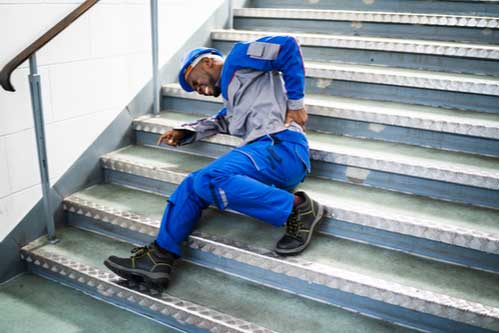Traumatic brain injury (TBI) affects millions of individuals across the country each year. These injuries result from various incidents, such as accidents, falls, and sports-related impacts, leading to varying degrees of brain damage. TBIs can result from both closed and penetrating head injuries, with outcomes ranging from complete recovery to permanent disability or death.
Traumatic brain injury can create chemical changes in the brain, affecting the way brain cells function and leading to various symptoms and complications.
This blog post aims to provide an overview of traumatic brain injury, focusing on their long-term effects, impact on daily life, and the differences between mild concussions and severe TBIs. Understanding your traumatic brain injury will help tremendously when you visit our Atlanta injury center and start the road to recovery.
What is a Traumatic Brain Injury?
Definition and Causes
Traumatic Brain Injury (TBI) is a brain disruption caused by an outside force. This can happen from accidents, falls, sports injuries, and other head injuries. Head injuries encompass various aspects, including prevention, types (penetrating and non-penetrating), and risk factors. Traumatic brain injury occurs when a sudden blow or jolt to the head causes the brain to move inside the skull and damage. TBIs can cause torn brain tissue, bleeding and other physical damage. TBIs can also lead to secondary brain injury, which involves further cellular damage mediated by neurochemical factors.
Immediate Symptoms
The traumatic brain injury symptoms will show up right away. The initial symptoms are confusion, dizziness and loss of consciousness. These means the brain is affected and get medical help now.
Types of TBIs
There are different types of traumatic brain injury, each one is different in severity, including moderate to severe TBI. Mild TBIs (mild TBI), also known as concussions or mild traumatic brain injury, involve brief changes in mental status or consciousness, and can lead to symptoms such as headaches, dizziness, and complications affecting thinking, remembering, and emotional well-being. Moderate or severe TBI involve extended periods of unconsciousness, memory loss, and significant cognitive impairment, and can result in physical, social, and emotional issues, including bleeding, swelling, and tearing in the brain.
Diagnosis and Initial Treatment
Diagnosing TBI involves a full medical exam, including neurological exams and imaging tests like CT scans or MRIs. Imaging tests can diagnose diffuse axonal injury, a common type of TBI, by showing widespread damage to the brain’s white matter. Initial treatment is to stabilize the patient, prevent further injury and address immediate symptoms like swelling or bleeding in the brain. Early intervention is key to better outcomes and prevention of complications.
Concussions vs Severe TBIs
1. Definition and Severity of Mild Traumatic Brain Injury
Concussions and severe TBIs are different in definition and severity. Concussions, also known as mild TBIs, is a blow or jolt to the head that causes temporary disruption in brain function. Symptoms are short term and resolves with proper care. Severe TBIs involve significant brain damage, often with prolonged unconsciousness, amnesia and long term or permanent impairment.
2. Symptoms
The symptoms of concussions and severe TBIs are vastly different in intensity and duration. Concussions cause headaches, dizziness, confusion and brief loss of consciousness. These symptoms are usually temporary but need to be monitored. Severe TBIs have more severe and prolonged symptoms, extended loss of consciousness, profound confusion, significant memory loss and physical impairments. Severe TBIs can involve axonal injury, causing widespread damage to the brain’s white matter and disrupt communication between nerve cells.
3. Diagnosis
The diagnosis for concussions and severe TBIs differ because of the severity of the injury. Concussions are usually diagnosed based on clinical symptoms and may include imaging tests like CT scans to rule out more severe injuries. Moderate to severe TBIs, which are classified based on the extent of brain damage, require full imaging tests, like CT or MRI, to assess the extent of brain damage and guide treatment. These injuries can be caused by various factors such as falls, vehicle accidents, or sports injuries. Diagnosis using imaging techniques is crucial for determining the severity, and prevention measures include wearing protective gear and following safety protocols.
4. Treatment
Treatment for concussions and severe TBIs are different. Treatment for severe TBIs involves immediate measures to prevent death and stabilize vital organ functions, followed by surgical procedures to relieve pressure on the brain or repair damaged tissue, and extensive rehabilitation to address consciousness-related problems and other effects on the brain. Concussion treatment is rest, gradual return to activities and monitoring for ongoing or worsening symptoms. Severe TBIs require intensive medical intervention, which may include surgery to relieve pressure on the brain or repair damaged tissue, then rehabilitation.
5. Recovery Time
Recovery time is vastly different between concussions and severe TBIs. Concussions usually resolves in a few weeks with proper care and rest. Severe TBIs have a much longer and uncertain recovery period, often months or years of rehabilitation and potentially long term disabilities.
6. Long Term Effects
Long term effects of concussions and severe TBIs are different. Most concussions resolve without lasting effects, but repeated concussions can lead to post concussion syndrome. Severe TBIs, classified as severe traumatic brain injury, often result in permanent cognitive, physical, and emotional impairments. Guidelines and treatments for severe traumatic brain injury include monitoring, threshold guidelines, and specific treatment protocols, significantly impacting an individual’s quality of life and ability to live independently.
Long Term Effects of Traumatic Brain Injury
Physical
Traumatic brain injuries can cause physical problems. Traumatic brain injury symptoms include physical issues such as skull fractures, which can affect the membranes, blood vessels, and brain. Chronic headaches are a long-term effect, often debilitating and affecting daily activities. Sensory issues, such as increased sensitivity to light, sound, or touch, can make environments uncomfortable and difficult to navigate. Impaired motor skills, such as coordination, balance, and fine motor skills, can affect daily activities and overall mobility.
Cognitive Effects of Diffuse Axonal Injury
Cognitive impairments are long term effects of TBIs. Memory problems can range from mild forgetfulness to severe memory loss, short term and long term recall. Attention deficits are common, making it hard for individuals to focus, sustain attention or switch between tasks efficiently. Language difficulties can occur, individuals having trouble speaking, understanding language and expressing themselves clearly.
Emotional and Behavioral Changes
Emotional and behavioral changes are profound effects of TBIs. Personality changes can occur, making individuals more impulsive, irritable and behave in ways inconsistent with their pre-injury self. These changes can strain relationships and alter social interactions. TBIs can also cause altered emotional responses, making it hard for individuals to manage their emotions and reactions.
Daily Life
Long term effects of TBIs affects daily life. Knowing the risk factors can help manage the impact of TBIs on daily life. In professional settings, cognitive and physical impairments can affect job performance and career progression. Academic pursuits can also be affected by attention deficits and memory problems. Family and friends will also struggle to adjust to the new personality and emotional landscape of the affected individual. The financial burden of ongoing medical care, rehabilitation and therapy adds to the challenges faced by TBI victims and their families.
Daily Life
Professional
Traumatic brain injuries can affect professional life. Cognitive impairments such as memory problems and attention deficits can affect job performance. Individuals may struggle to meet the cognitive demands of their role, affecting productivity and career progression. Motor skill impairments can also limit the ability to do tasks that require fine motor skills or physical activity.
Academic
For students, TBIs can be academic challenges. Attention deficits and memory issues can make it hard to focus in class and retain information. Language difficulties can affect reading comprehension and the ability to express themselves clearly in written or spoken form. These challenges often requires special accommodations and support services to help students succeed academically.
Strain on Personal Relationships
The emotional and behavioral changes caused by TBIs can strain personal relationships. Personality changes, increased irritability and altered emotional responses can make interactions with family and friends difficult. Loved ones will struggle to adjust to the changes in the affected individual’s behavior and emotional state leading to tension and conflict.
Financial
The financial burden of TBIs is massive. Long term medical care including rehabilitation and therapy is often required to manage symptoms and improve quality of life. These ongoing expenses can be huge, on top of that. Reduced earning capacity due to professional challenges adds to the financial burden.
Daily Living
Daily living can affect TBIs. Simple tasks that require cognitive effort like managing finances, following a schedule or doing household chores can be tough. Motor skill impairments can also make activities of daily living like dressing, cooking and personal care more difficult and time consuming.
Come to Our Atlanta Spine and Orthopedic Clinic Today!
Traumatic brain injuries can be scary to deal with, but having the knowledge about their symptoms, causes, and diagnoses processes will ease some of the anxiety. At Georgia Spine and Orthopedic, we are dedicated to answer any questions you have and start proper medical treatment.
Schedule an appointment to see us at 404-687-9000!









